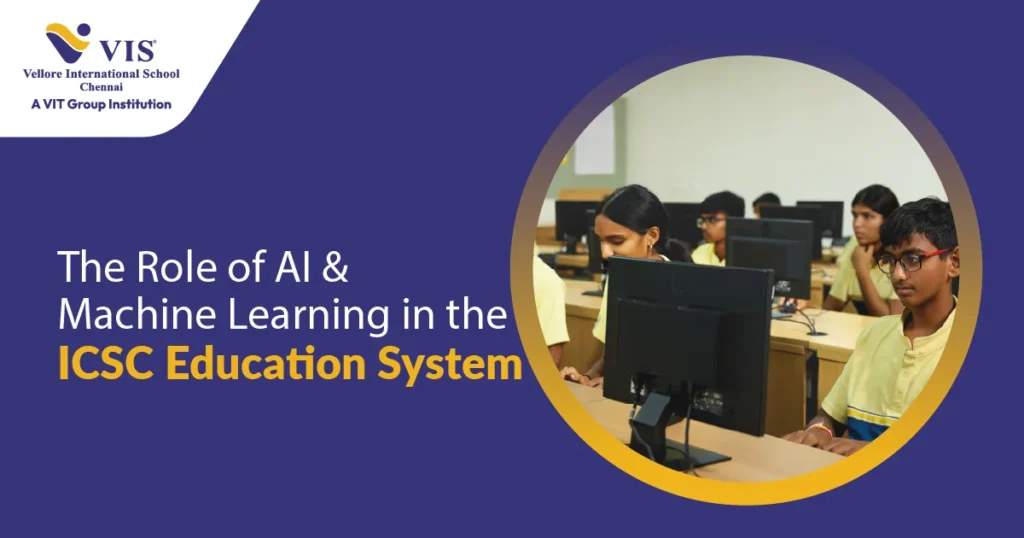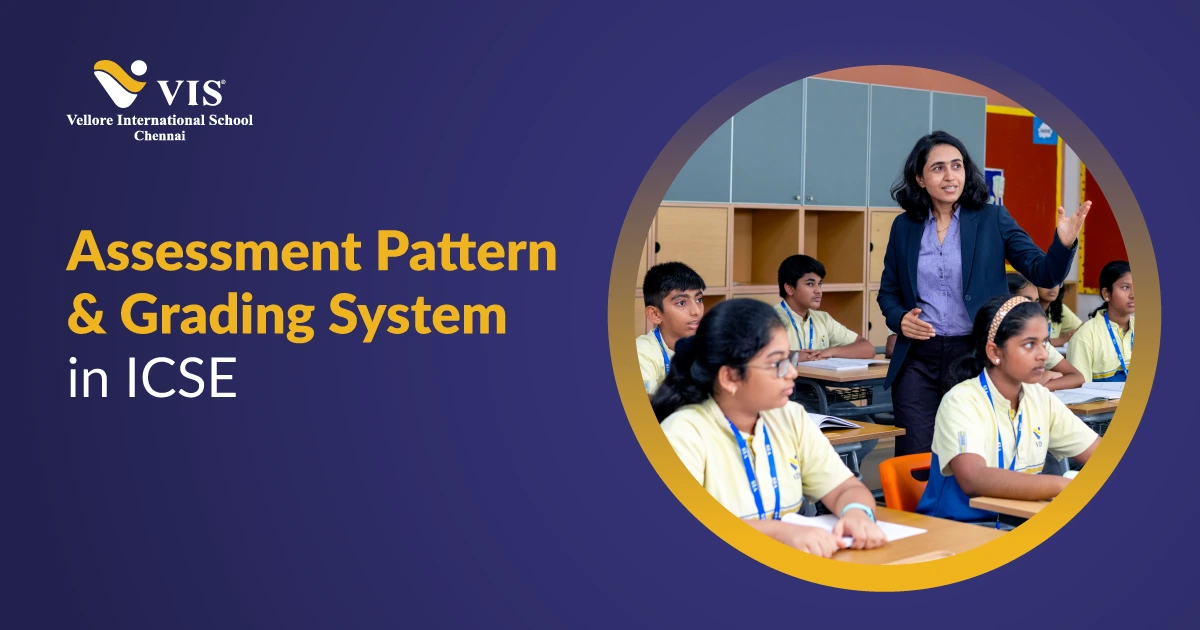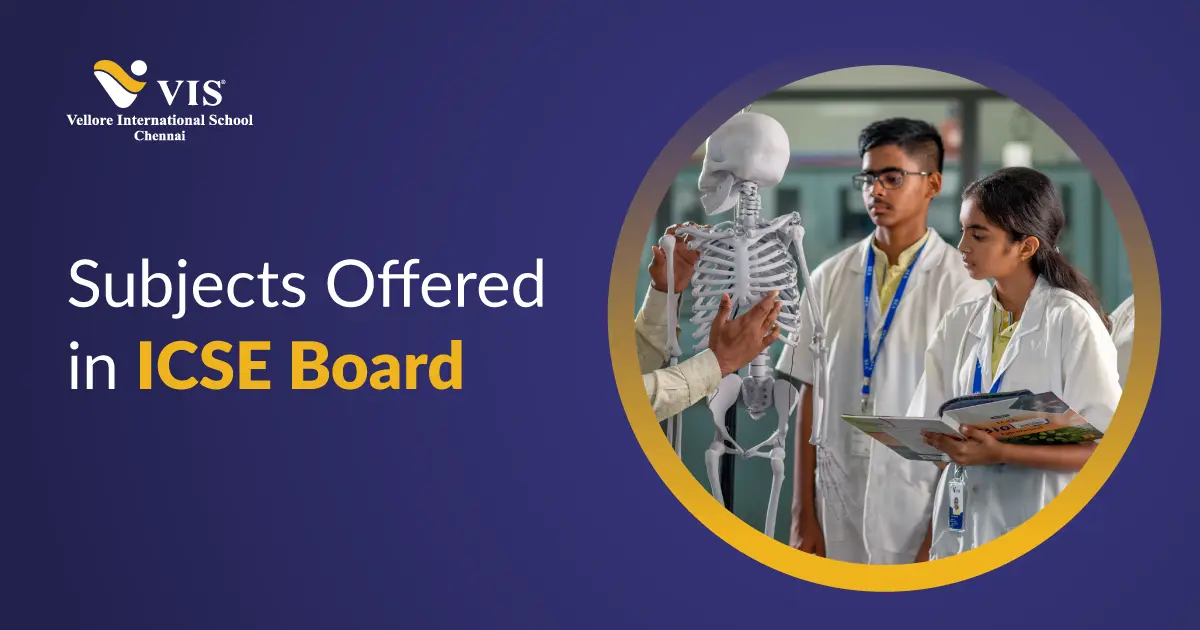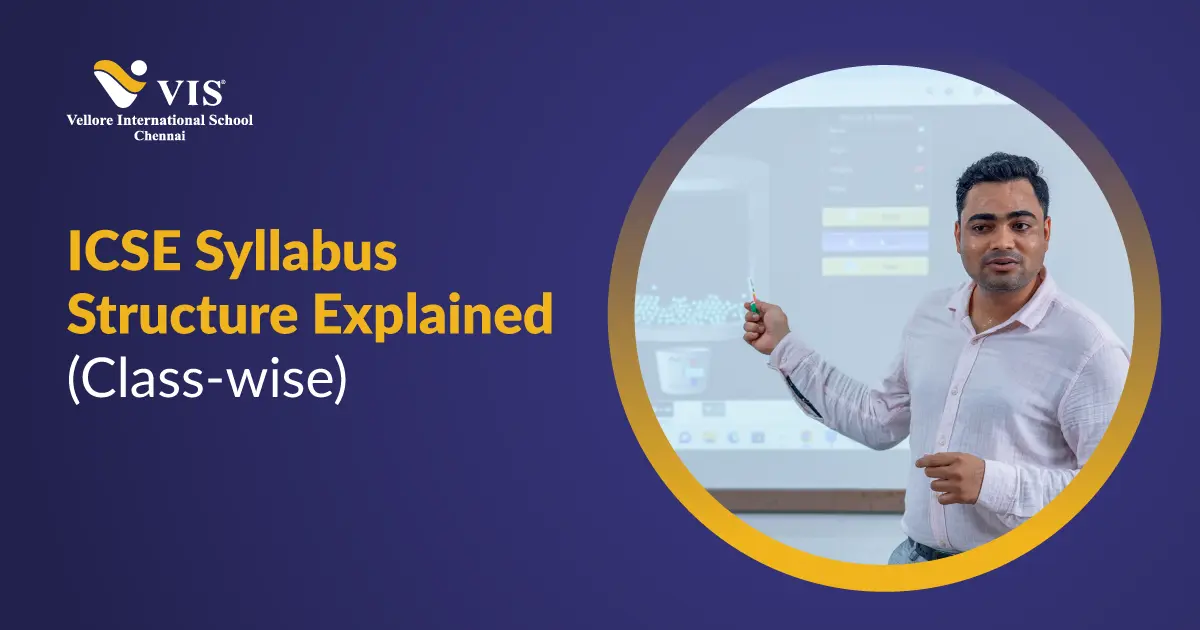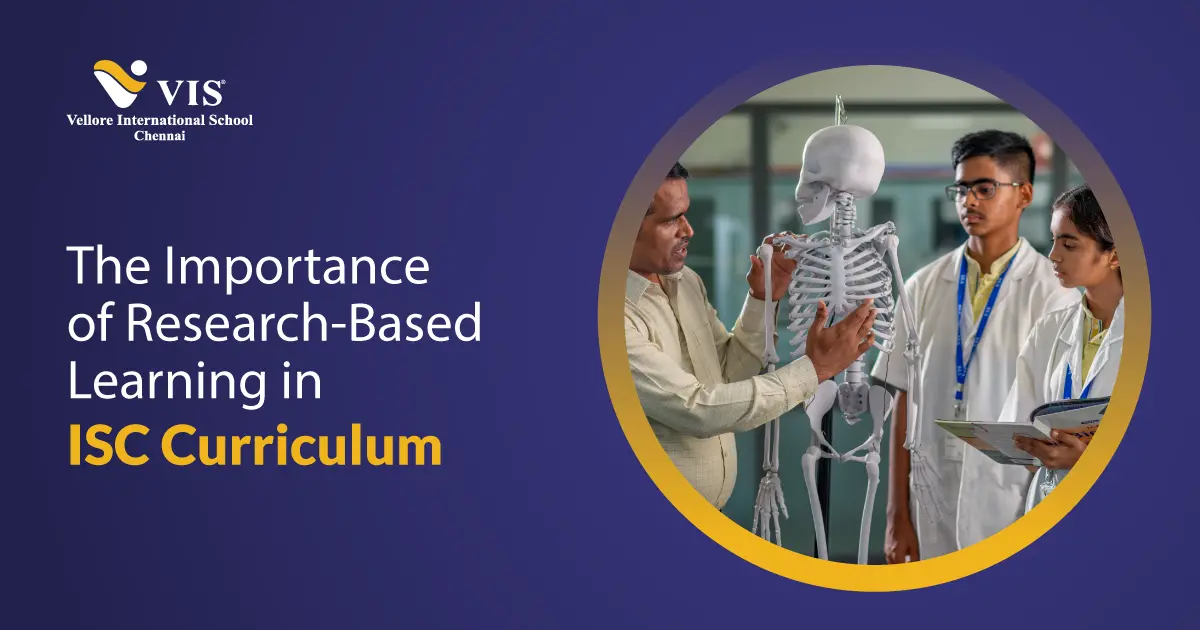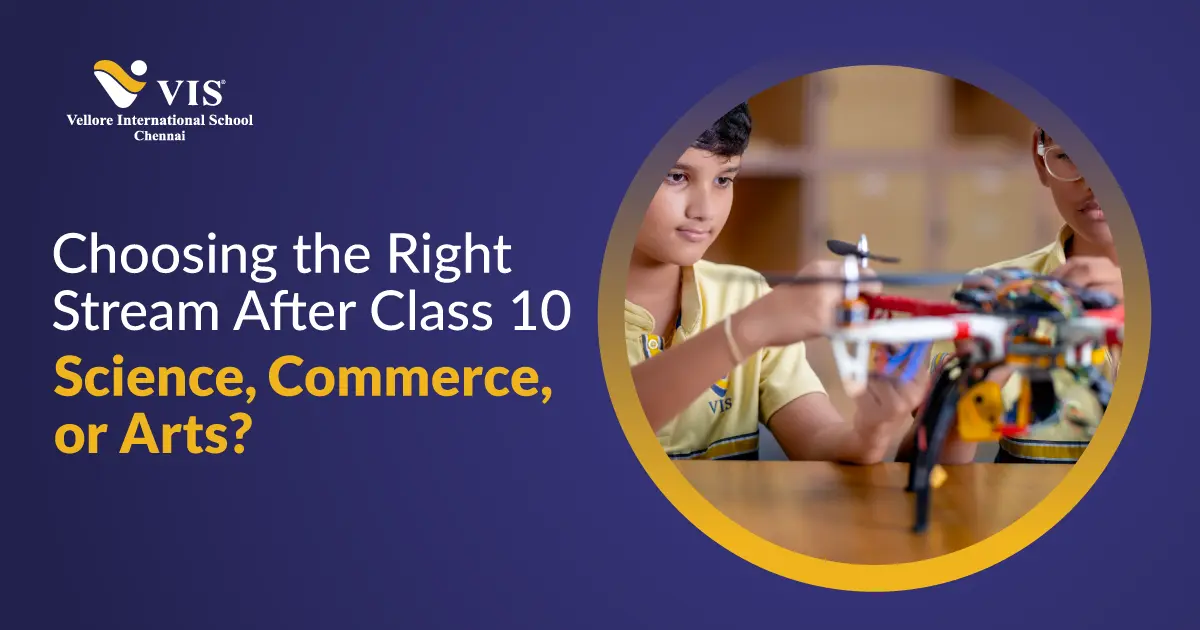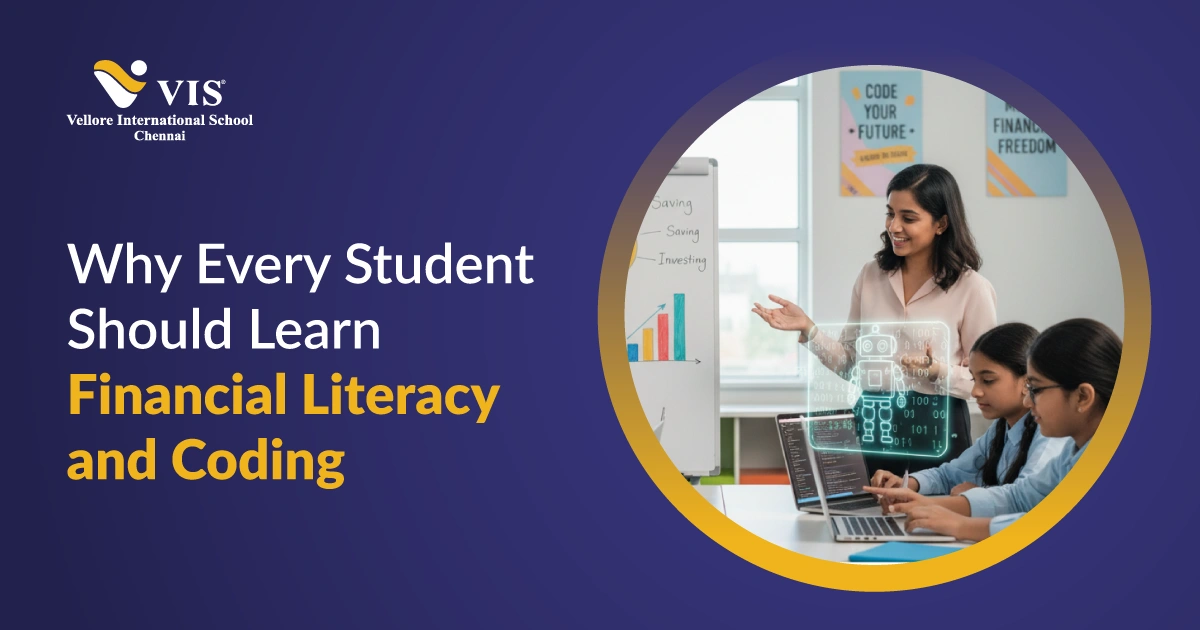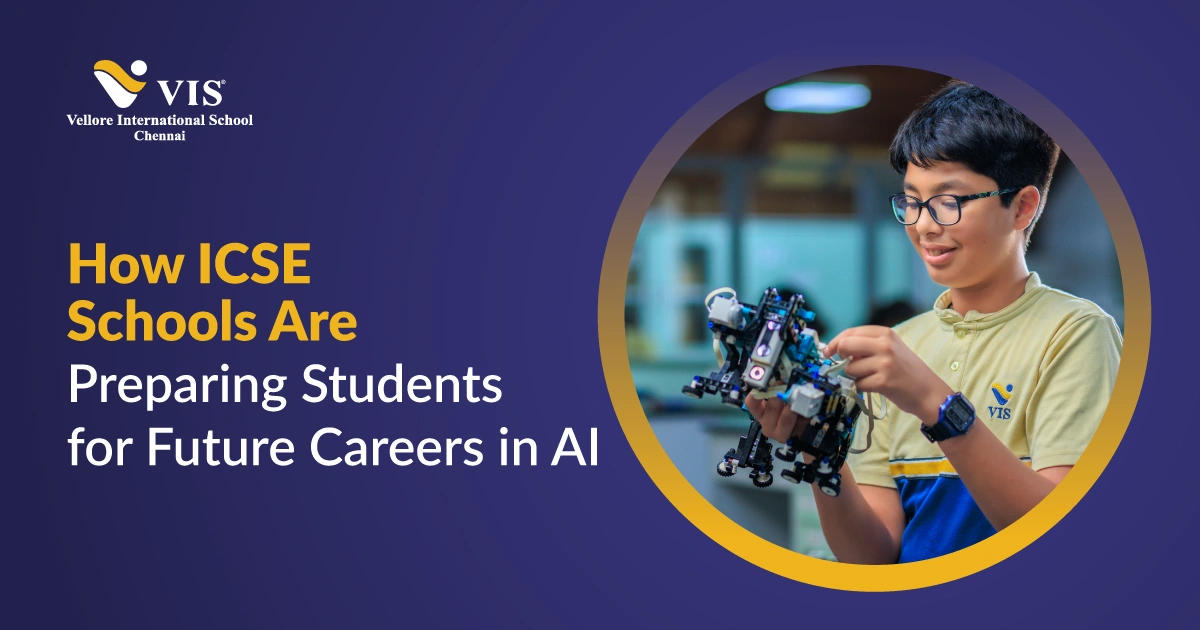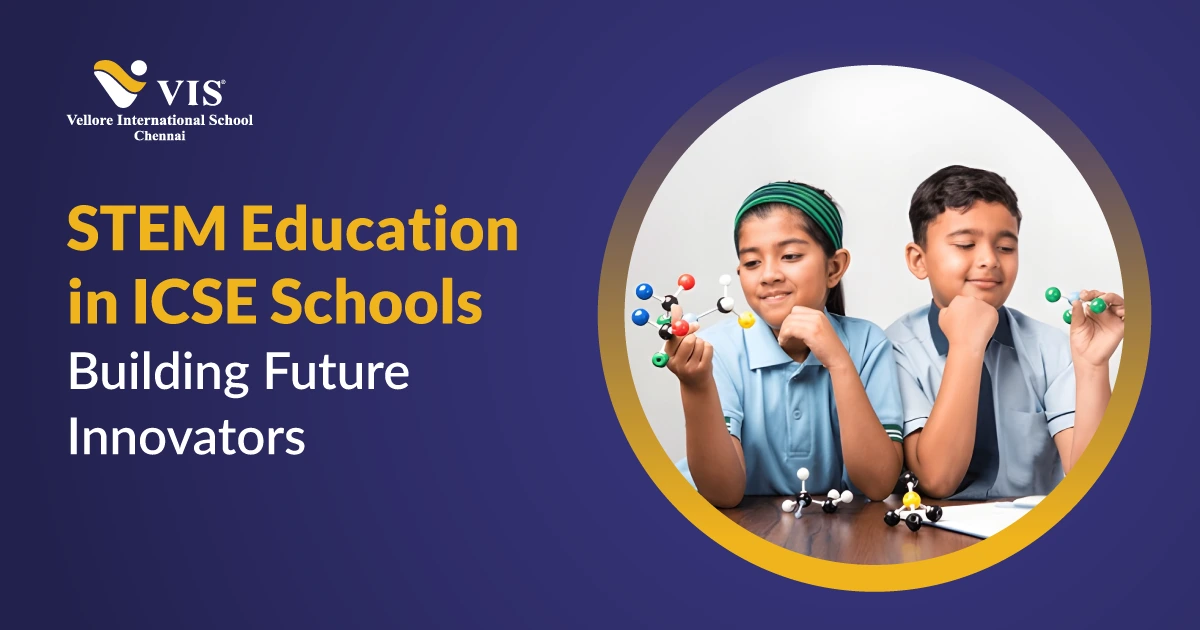Introduction
As technology advances at an exceptional rate, integrating AI & machine learning in ICSC education has become a pivotal trend in transforming how students learn, train, and interact within the educational framework.
Here is the answer to all your questions. Learn more about how AI and machine learning are reshaping the ICSE education system, enhancing teaching methodologies, personalising learning, and preparing students for the future.
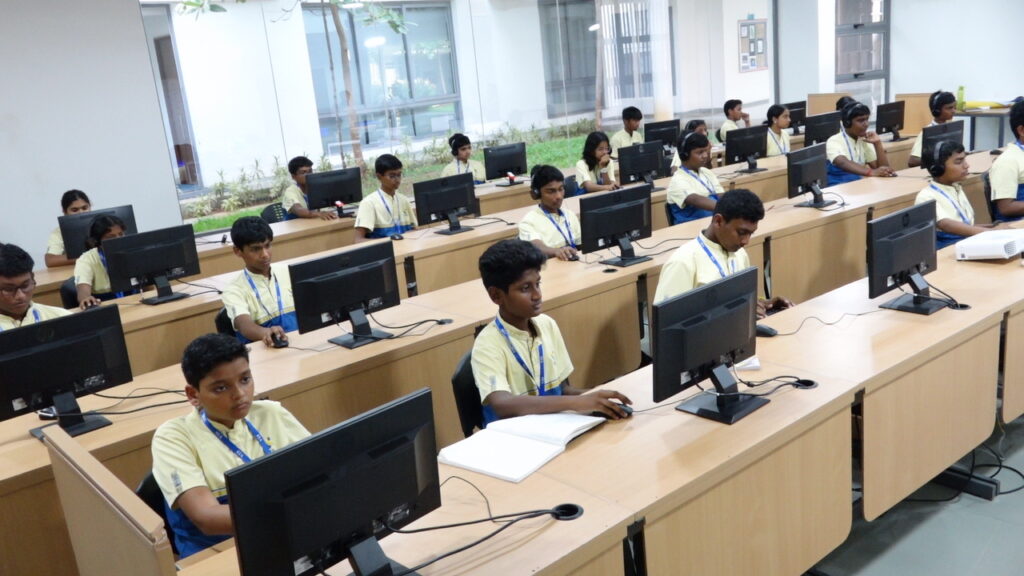
Key Role of AI & Machine Learning: ICSE Education System
Consider the below topics, we detailed mentioned major points about AI & machine learning. Describe the recent IT technologies and more.
1. Overview of AI & Machine Learning
What are AI and Machine Learning?
Artificial Intelligence (AI) refers to the simulation of human intelligence in machines programmed to think and learn. Machine Learning (ML), a subset of AI, involves algorithms that enable computers to learn from and make predictions based on data. Together, these technologies can analyse vast amounts of information, identify patterns, and Excel intelligent decision-making, making them invaluable tools in educational settings.
The Importance of Education
In recent years, the adoption of AI and machine learning in ICSE education has become crucial. These technologies offer myriad benefits that enhance the teaching and learning process. They allow educators to create the best educational experiences for individual student needs, making learning more effective and engaging.
2. Personalising Learning Experiences
One of the most significant impacts of AI & machine learning in ICSC education is personalisation. Traditional teaching methods often follow a ‘one size fits all’ approach, which does not match every student’s unique learning needs. AI-implemented tools can address this challenge by offering personalised learning experiences.
Adaptive Learning Platforms
AI-powered adaptive learning platforms use algorithms to assess students’ strengths and weaknesses. As students engage with the curriculum, these platforms adjust the material based on performance, ensuring that learners receive content that is neither too challenging nor too simplistic.
Custom Feedback
Immediate and customised feedback is critical for student development. Machine learning algorithms can provide educators with insights into individual student progress, enabling them to provide real-time assistance. This proactive approach fosters an environment where students can work independently while clearly understanding their progress.
3. Enhancing Teaching Methodologies
AI and machine learning in ICSE education benefit students and empower educators with innovative methods to enhance their teaching practices.
Intelligent Tutoring Systems
Intelligent Tutoring Systems (ITS) are programs that provide personalised guidance to students without direct teacher involvement. These systems can help identify areas where a student may struggle and deliver customised instructional support. By integrating ITS into the curriculum, teachers can focus more on enabling discussions and promoting critical thinking while technology assists with individualised learning.
| Did you know?From the Minsitry of eductaion official announced, By end of 2026, Education system in India will adapt new technologies in all board of syllabus(Medium). |
Real-time Updates
AI technologies can analyse vast amounts of educational data, providing educators with insights into classroom dynamics. This analysis includes understanding which teaching methods resonate most effectively with students and identifying potentially disengaged learners. With this knowledge, teachers can refine their methodologies and enhance educational outcomes.
Streamlining Administrative Tasks
AI algorithms can significantly reduce the administrative burden on educators by automating tasks such as grading, scheduling, and attendance tracking. This enables teachers to concentrate on what they do best, teaching and mentoring students, leading to a more effective education system.
4. Promoting Collaborative Learning
Collaboration is an essential component of a successful learning experience. AI & machine learning in ICSC education facilitates enhanced collaborative opportunities among students.
Virtual Learning Environments
AI-powered virtual learning environments can connect students, allowing them to collaborate on projects regardless of location. This collaboration fosters teamwork and communication skills, critical attributes for success in both academic and professional settings.
New Era Gamification and Interactive Learning
Using AI in various educational applications can lead to gamification, making learning more interactive and enjoyable. Students can collaborate and compete through games and engaging activities, motivating them while reinforcing the subject matter.
5. Preparing Students for Future Careers
Combining AI and machine learning in ICSE education prepares students for future job markets that are increasingly reliant on technology. Understanding how these technologies work is essential, as they will be integrated into nearly every field.
Developing Technical Skills
Adapting to AI and machine learning will help students develop critical technical skills that are becoming prerequisites for most modern careers. Programs that include coding, data analysis, and algorithmic thinking will position students for success in a technology-centric future.
Encouraging Analytical Thinking
As students engage with AI and machine learning concepts, they develop analytical thinking skills that enable them to assess problems critically. This skill set is valuable in tech-related fields and transferable to various domains, enhancing students’ overall competencies.
6. Ethical Considerations in AI Education
While AI and machine learning have numerous benefits in ICSE education, ethical considerations surrounding these technologies must be addressed. As educators integrate AI into the classroom, students must understand the ethical implications, including data privacy, algorithmic bias, and the responsible use of instructional technology.
Educating about Ethics
Educators should include discussions about ethical issues in AI in the curriculum. By doing so, students become more skilled at evaluating these technologies critically, leading to responsible use in their personal and professional lives.
7. The Future of AI & Machine Learning in ICSC Education
The potential for AI and machine learning technologies in the ICSE education system is vast and continually evolving. As innovations occur, we can expect further enhancements in teaching methodologies, accessibility, and student engagement, enabling even more personalised and compelling learning experiences.
At Vellore International School, we are committed to integrating AI & machine learning in ICSC education, recent these technologies to advance pedagogy, enrich learning opportunities, and better prepare our students for a dynamic future. By staying at the top of technological advancements in education, we aim to foster a new generation of innovative thinkers trained to succeed in diverse fields.
VIS: Where Young Minds Master AI & ML
At VIS, Despite challenges, integrating AI, ML, Data Analytics, and AR/VR technologies in education can provide tremendous opportunities and significantly transform how students learn and educators teach. We can foster a holistic environment where traditional pedagogy intertwines seamlessly with real-time technology to nurture today’s generation’s adaptable minds and empower them to reach their full potential in today’s evolving and global development.
Conclusion
The integration of AI and machine learning in ICSE education is a transformative step towards fostering a more effective, engaging, and personalised learning environment. By adopting technology, educators can enhance their methodologies, facilitate student collaboration, and prepare future generations for the evolving job market. The future of education is undoubtedly intertwined with artificial intelligence, and at Vellore International School, we are excited to be part of this learning journey.
FAQs
1. How does AI personalise learning for ICSE students?
AI personalises learning through adaptive learning platforms that assess students strengths and weaknesses, delivering best content and feedback based on performance.
2. Can AI replace teachers in the classroom?
No, AI is designed to support teachers, not replace them. It automates specific tasks and enhances teaching strategies, allowing educators to focus on fostering critical thinking and collaboration among students.
3. What skills will students develop through AI and machine learning education?
Students will develop technical programming and data analysis skills, as well as critical thinking and problem-solving skills, essential for responsibly evaluating and using AI technologies.
4. What are some ethical considerations regarding AI in education?
Critical ethical considerations include data privacy, algorithmic bias, and teaching students responsible technology use.
5. How does AI facilitate collaboration among ICSE students?
AI fosters collaboration through virtual learning environments and gamification strategies, enabling students to collaborate on projects and compete in engaging educational activities.

